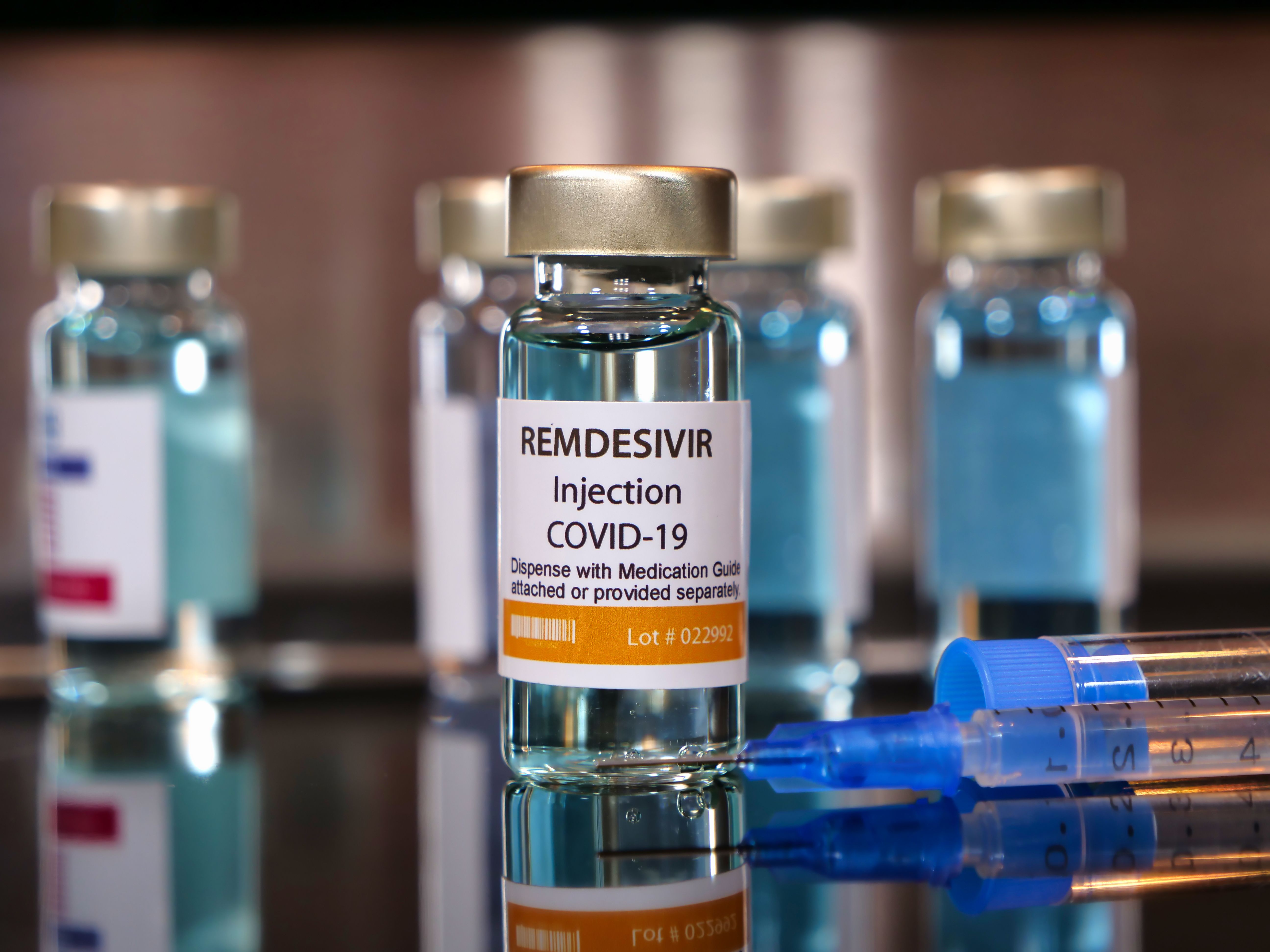- Clinical Technology
- Adult Immunization
- Hepatology
- Pediatric Immunization
- Screening
- Psychiatry
- Allergy
- Women's Health
- Cardiology
- Pediatrics
- Dermatology
- Endocrinology
- Pain Management
- Gastroenterology
- Infectious Disease
- Obesity Medicine
- Rheumatology
- Nephrology
- Neurology
- Pulmonology
Remdesivir May Significantly Reduce Risk of Hospitalization in High-risk COVID-19 Patients, Suggests New Study
Findings from a phase 3 clinical trial showed remdesivir reduced the risk of COVID-19-related hospitalizations by 87% in high-risk patients, the drug's manufacturer announced.
©Bernard Chantal/stock.adobe.com

Remdesivir (Veklury, Gilead Sciences Inc.) was found to reduce the risk for COVID-19-related hospitalization by 87% in high-risk patients in a phase 3 clinical trial, the company announced on Wednesday.
“We are seeing very high numbers of hospitalized patients as new COVID-19 infections surge, placing increased demands on already over-burdened healthcare systems. Remdesivir, also known as Veklury, is an effective antiviral for the treatment of hospitalized patients with COVID-19 and an essential tool to help reduce disease progression,” said study coauthor Robert L. Gottlieb, MD, PhD, cardiologist and principal investigator, Baylor University Medical Center, Houston, Texas, in the September 22, 2021, press release.
The randomized, double-blind, placebo-controlled trial evaluated the efficacy and safety of a 3-day course of intravenous remdesivir in an analysis of 562 nonhospitalized patients at high risk for COVID-19 disease progression. Participants were assigned in a 1:1 ratio to receive remdesivir (200 mg on day 1, 100 mg on days 2-3) or placebo.
Overall, 52% of participants were men, 44% were Hispanic/Latino, and 30% were aged ≥60 years. The most common comorbidities were diabetes mellitus (62%), obesity (56%), and hypertension (48%).
The primary outcome measure was a composite of COVID-19-related hospitalization or all-cause death from date of randomization up to day 28. The secondary outcome measure was a composite of medical visits due to COVID-19 or all-cause death by day 28.
Remdesivir demonstrated a statistically significant 87% decrease in risk for COVID-19-related hospitalization or all-cause death by day 28 compared with placebo (hazard ratio [HR], 0.13; 95% CI, 0.03-0.59; p=0.008). Also, remdesivir demonstrated an 81% reduction in risk for COVID-19-related medical visits or all-cause death by day 28 compared with placebo (HR, 0.19; 95% CI, 0.07-0.56; p=0.002). No deaths were observed in either group by day 28, according to the statement.
The proportion of patients with adverse events (AEs) was similar between arms, and the most common AEs in the remdesivir arm were nausea (11%), headache (6%), and diarrhea (4%).
Remdesivir is the only antiviral medication approved by the US Food and Drug Administration for the treatment of COVID-19 in hospitalized patients aged ≥12 years. Its use for the treatment of nonhospitalized patients with 3 days of dosing is investigational, and the safety and efficacy for this use and dosing duration has not been established or approved by a regularly agency, noted the press release.
“Last summer, data from clinical trials demonstrated the benefit of remdesivir in patients hospitalized with COVID-19, even when not yet requiring oxygen. These latest data show remdesivir’s potential to help high-risk patients recover before they get sicker and stay out of the hospital altogether,” stated Dr Gottlieb.
Trial enrollment was stopped prior to fulfilling the original target of 1264 participants in April 2021, due to study enrollment feasibility and changing needs of nonhospitalized patients. These findings will be presented at the upcoming IDweek 2021 virtual conference.
